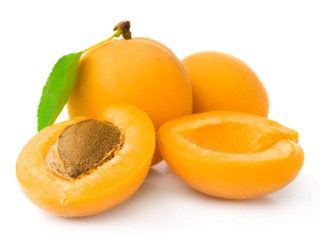

In moderation, dogs can eat ripe or dried apricots. They are a good source of antioxidants that fight off diseases and free radicals. However, it is important to remove the apricot pits and only give the flesh to dogs.
Apricots are rich in antioxidants that prevent cell damage caused by free radicals. They are also a great source of vitamins A and C, which boost immunity and keep the skin, eyes, and coat healthy. Additionally, apricots contain potassium, which optimizes organ function and helps prevent muscle pain and cramping. Beta carotene in apricots also minimizes the risk of cataracts in dogs. Apricots can even be used as an appetite enhancer.
Apricot pits are a choking hazard and should always be removed before giving the fruit to dogs. The seeds in apricot pits contain amygdalin, which can release cyanide that is toxic to dogs.
Before giving your dog apricots, wash them thoroughly and cut the fruit into small, bite-sized pieces. Remove the stone and only give your dog 1/2 to one apricot depending on their size. It is important to moderate the amount of apricots given to avoid any negative effects.
Apricots, also known as Prunus armeniaca, are a juicy stone fruit that originate from China and have been cultivated for thousands of years. They are commonly used in baking, smoothies, and as a delicious snack. Besides being a tasty treat, apricots have numerous health benefits for dogs. They are a great source of antioxidants and vitamins, such as A and C, which strengthen the immune system and promote healthy skin and fur. Apricots also contain potassium, which helps to regulate important organ functions and prevent muscle cramps. These fruits are relatively affordable and can be found in most supermarkets.
However, it is important to remove the apricot pits before giving them to your dog as they can cause choking hazards and release cyanide into the body. Only the flesh of the apricot should be given in small quantities to avoid any negative effects. A serving size of 1/2 to one apricot, depending on the size of your dog, once in a while should be just fine.
If you are looking for alternative fruits to feed your dog, we suggest trying blueberries and strawberries as they are packed with antioxidants and essential nutrients. Additionally, they are small and easy to cut into bite-size pieces for your furry friend.
Have you ever given apricots to your dog? Did they enjoy them? Share your experience with us in the comments below! And remember, always consult with your veterinarian before introducing a new food to your dog's diet to ensure their safety and health.